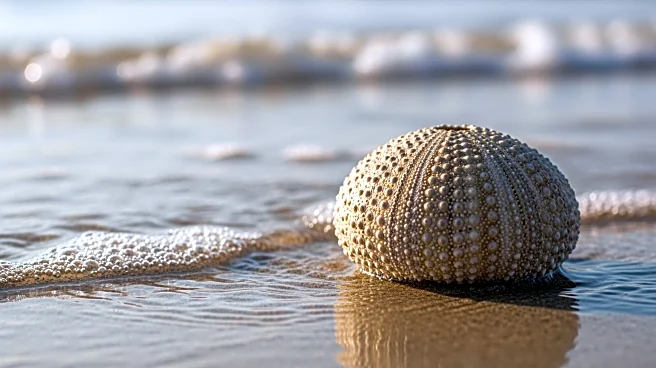What's Happening?
Researchers have discovered that sea urchins possess a complex nervous system that functions like an 'all-body brain.' This finding was made by an international team of scientists who found that the genetic organization of sea urchins' nervous systems
resembles that of vertebrate brains. The study, led by biologist Jack Ullrich-Lüter from the Natural History Museum in Berlin, challenges previous assumptions about the evolution of complex nervous systems. Sea urchins, along with other echinoderms like starfish and sea cucumbers, exhibit a unique body plan that changes symmetry as they mature. The research involved mapping the cell types in young purple sea urchins, revealing a diverse array of neuronal cell types expressing both echinoderm-specific and ancient genes found in vertebrate central nervous systems.
Why It's Important?
This discovery has significant implications for understanding the evolution of nervous systems in animals. It suggests that complex brain-like structures can develop in organisms without a conventional central nervous system, challenging traditional views on nervous system evolution. The findings could lead to new insights into how nervous systems can adapt and evolve in different species. This research may also have broader implications for the study of neurobiology and the development of new technologies inspired by biological systems. The discovery of light-sensitive cells across the sea urchins' bodies further highlights the complexity of their nervous systems and suggests potential new avenues for research into sensory processing in simple organisms.















